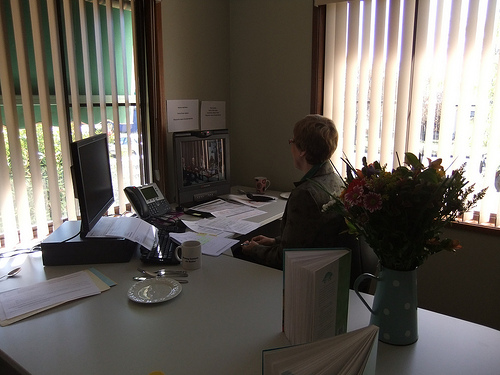Listen to the 6-minute podcast version
Watch a 1-minute introductory video
What do you do if you suspect someone at work has an addiction problem?
You have a choice to make. The easy approach is to do nothing; that’s what most people choose. But is that the right thing to do? What if you were the manager or coworker of this person?
Years after that meeting and after being in recovery, I thought about that executive and my former manager. I wondered if they knew I had issues with alcohol but felt they couldn’t say anything about it. Who knows, maybe if I could have opened up and they had urged me to get help, things would had turned out differently than they did.
The incident above actually happened to someone I know. The sobering reality is that many similar stories take place all the time when someone in the workplace makes a choice—to do nothing.
Making a Choice
If you believe someone at work has an addiction problem, there are several choices you can make:
- Do nothing – Most people avoid uncomfortable situations, and they may rationalize good-sounding reasons why doing nothing makes sense. But, if someone you know has an addiction problem, it will likely get worse. Is it right for you to do nothing as that happens?
- Do the wrong thing – Occasionally, people will react in self-righteous judgment and heap shame on others for their behavior. Addiction, however, is often complicated. Attacking someone who is struggling will likely cause them to retreat into deeper shame and denial.
- Do the business thing – If you are the person’s manager, you may have to counsel them, create an improvement plan, and monitor their performance. But consider the bigger picture of what’s at stake: their career, their well-being, their family, their life. Instead of looking for a way to get rid of the problem, think about what you can do to help them get better.
- Do the right thing – You can’t fix someone with an addiction issue, but perhaps you can help.
When someone at work has an addiction problem, you have an opportunity to serve and help them, but you may be unsure of what to do. You may wonder, “What is doing the right thing?”

Doing the Right Thing
In those uncomfortable situations, what is the right thing to do? Here are some ideas to consider:
- Be available – Spend time with them, including face to face versus through email or texts. Ask how they are doing, and then listen. Be their friend for a while and see what happens.
- Be aware – Look for what’s going on below the surface. Show genuine empathy and seek to see their world through their eyes. Do what you can to meet them where they are.
- Be authentic – Be vulnerable and share a struggle you have gone through. By so doing, you can lessen the shame they may be feeling and begin to help them right where they are.
- Be trustworthy – Be understanding and supportive and help them move toward safety. Keep what they say confidential, but don’t enable them or cover up for their work performance. If you are their manager, set clear expectations, but do so with grace and compassion.
- Be helpful – Help them understand that we all have issues and encourage them to find the hope and courage to take a positive step. Urge them to see a counselor or go to a recovery meeting. Point them to helpful information such as these articles: Prevention Can Be Learned; How to Prevent Addiction; and Weathering the Storm of Alcoholism.
If you suspect someone at work has an addiction problem, you have a choice to make. You also have a responsibility: to consider the big picture and do the right thing. You will likely feel uncomfortable about what to do. But you can take it a step at a time, so start by being available.
Question: How would you handle it if someone at work has an addiction problem?
Action: Do something to be available to someone who may be struggling personally.
Photo by Johnragai-Moment Catcher  Photo by vivevans
Photo by vivevans  Photo by jijake1977
Photo by jijake1977 

